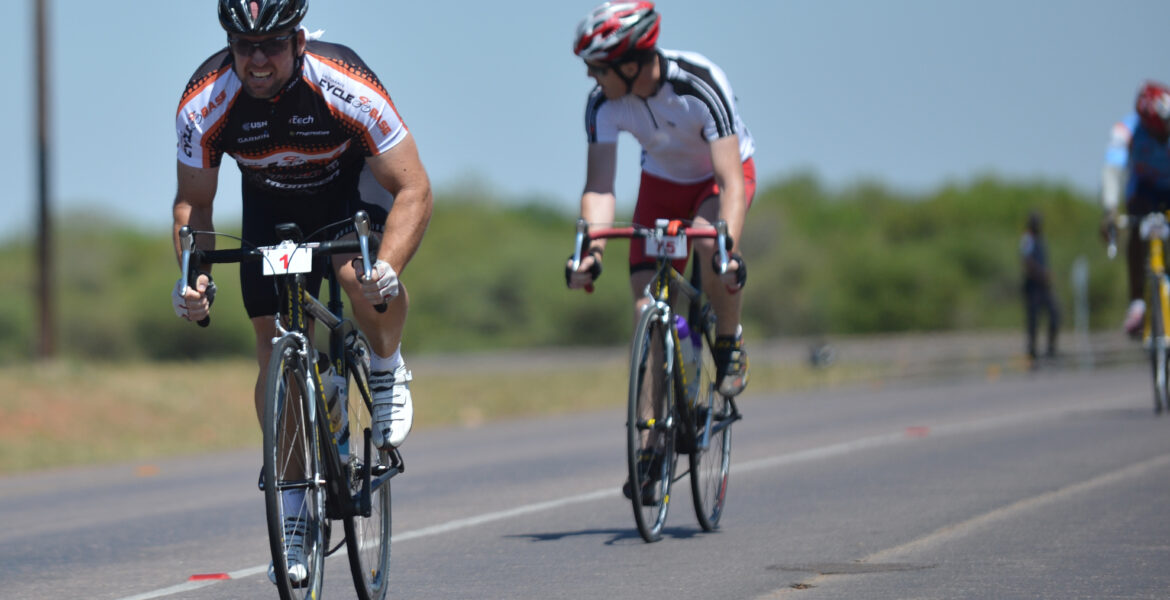GAZETTE REPORTER
Botswana Cycling Association (BCA) has revealed a jam-packed calendar of events following a COVID-19 break.
BCA Secretary General Shimane Serameng told Gazette Sport that although the beginning of the year has not been eventful, there will be a series of competitions from this month until November this year.
Serameng indicated that they have only held two races thus far adding that more clubs have started to add their events to the calendar.
He stated that they intend to send athletes to the mountain bike continental championships to be held in Namibia this month.
Serameng highlighted that although their intention is to send as many athletes to Namibia for the continental championships they are however restricted by finances.
“As we will be sending out a team of riders to Namibia our intention is to have as many riders as we can but the challenge in Botswana is that we rely on government to aid us financially,” stated Serameng.
He also said next month will have more events particularly locally based.
“The month of May has more sponsored rides including Albert Milton three day race which start on the 19th until the 21st from Jwaneng going to Mahalapye and then back to Gaborone,” said Serameng.
He also said in the same month of May they have national championships that will be an individual time trial adding that the last one will be in June while the last one which will be the mountain bike will be held in July.
Serameng said in July there will be a stage race that will be hosted by Tsela riders that will run from the 22nd to the 24th.
He highlighted that in the same month of July they will host Bafazi tour also organized by Tsela riders.
“Bafazi tour that is organised by Tsela riders will see a lot of women riders from South Africa being hosted by Tsela riders and they will be doing this tour in an effort to encourage more women to join cycling,” added Serameng.
Serameng said in Botswana more focus is pinned on three disciplines being mountain bike, road cycling and individual time trial.
“In Botswana because we are still developing we are still focused on road cycling and mountain bike,” said Serameng.
He stated that they have continued to strive hard to ensure that riders are able to participate in continental and world championships despite financial challenges.
Cycling like other sporting codes was affected by COVID-19 and had to break until government issued a greenlight to allow return of sporting activities.
Recently Cycling’s world governing body, Union Cycliste International (UCI), announced a range of amended rider safety rules ahead of the new season to improve rider safety.
This came after a series of incidents involving international cyclists.
Among new safety measures was the ban of ‘super-tuck’- position from the professional peloton. A bicycle’s top tube would be prohibited.
According Article 1.3.008, ‘riders shall normally assume a sitting position on the bicycle.’
The rules require that the only points of support should be: ‘feet on the pedals, the hands on the handlebars and the seat on the saddle’ with riders facing possible suspension from the races if caught descending on their top tubes.
Local coaches have reportedly hailed the new regulations.
“The safety of cyclists is paramount to cycling competition, and if there is need to introduce new rules to improve cyclists’ safety so be it,” stated UCI accredited coach level 1 Kagiso Potongwane.
He noted that sporting authorities have a responsibility towards their respective sports. He likened the developments in cycling to the introduction of the Video Assistant Referee (VAR) in football, which caused much controversy and had since been embraced.
Therefore he said UCI has a responsibility for the safety of cyclists during competitions.
Potongwane said in his journey as a cycling coach, he has witnessed instances where accidents were caused by such poses during a race, especially from amateur who in most instances will attempt such stances in local races after witnessing professionals doing them only to cause major crashes.
He noted that the positions reduce the cyclists’ ability to control their bicycle, and in an emergency the reaction time by the cyclist is greatly reduced. Therefore he said banning them will certainly help improve safety of riders during local road races.

